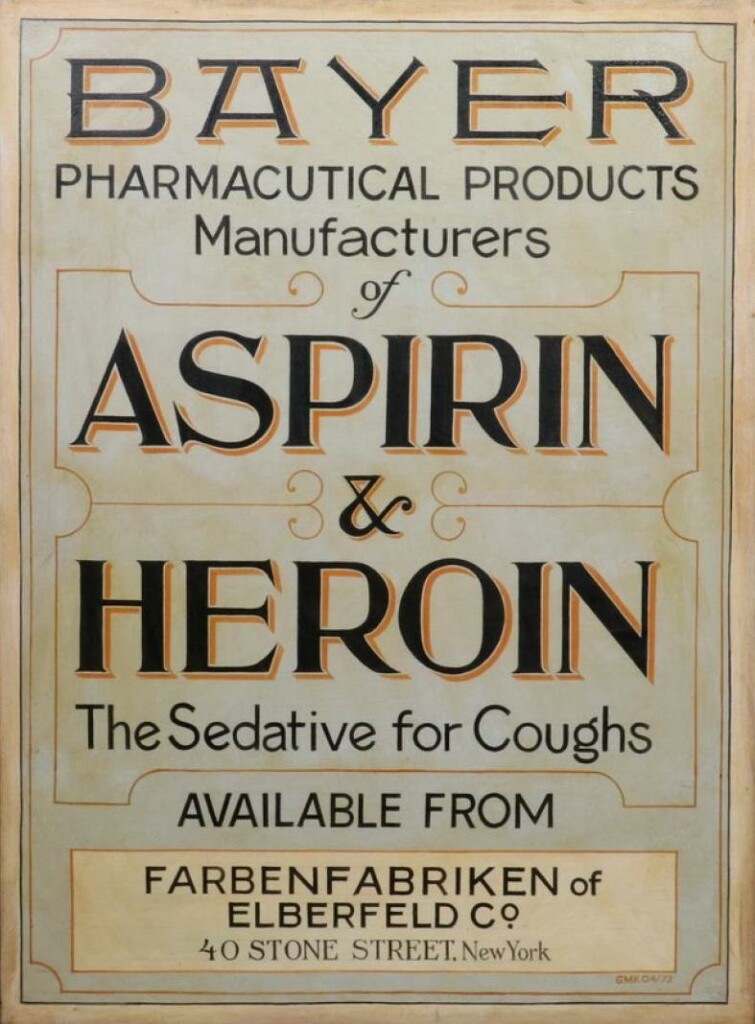
ADVERTISEMENT - CONTINUE READING BELOW
4. The drug which was once a brand name
Although other chemists had synthesized diamorphine 1870s, it took those working for the German drug giant Bayer to find a market for the drug. Felix Hoffman, working for Bayer two decades later, was attempting to produce codeine from morphine when he synthesized diacetylmorphine. The new drug was up to twice as potent as morphine itself. Bayer’s researchers named the new drug and trademarked the name as Heroin. In 1895 they began marketing Heroin aggressively in Europe and in the United States. They claimed the new product was non-addictive and could thus be used as an alternative to morphine to control pain. They also touted its superiority as a cough syrup. For several years the drug was available in the United States without a prescription, and Bayer advertised it in catalogs, magazines, newspapers, and in store displays.
Changes to American law made Heroin available only by prescription in 1914’s Harrison Narcotics Tax Act. In 1924, the United States banned it completely. By then the trademark Heroin was no longer held by Bayer. The German company lost it, along with several other trademarks and brand names, under the provisions of the Treaty of Versailles which ended the First World War. Until the imposition of that treaty, Aspirin was another brand name for a drug developed and marketed by Bayer. Heroin as a brand name was relatively short-lived, but as a societal issue, it has remained problematic for over a century. Bayer’s claims of its non-addictive properties were long ago proved false, and heroin and other opioid addictions claim thousands of lives each year. Under US federal law, it can be possessed only by those with a Drug Enforcement Agency (DEA) license.

